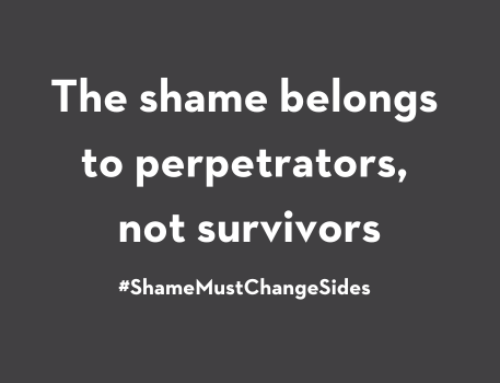
It’s common to underestimate the impact of harassment, after all how much could a simple comment really affect someone? The reality is street harassment often results in fear, dehumanization and feelings of powerlessness. Many individuals who have been the target of unwanted comments or touching on the street experience severe and long lasting impacts.
These effects can include:
- Feeling powerless: One of the most common justifications for sexual comments made to women in the street is that they are meant as compliments and should be taken as such. However, more often than not these actions are purposefully used as a way to objectify and degrade women. Street harassment is not a compliment. As a very enthusiastic feminist, I often have no problem butting in on conversations or situations I see that promote sexism, rape culture, body shaming, etc. I can’t count the times I’ve imagined being cat called in my head and all the amazing and empowering comebacks and responses I could have. Yet time and time again when a man on the street comments on my body all of those comebacks dissolve into fear and I walk away feeling vulnerable and weak.
- Changing your habits and day-to-day life: Fear of being harassed forces many women to develop habits and techniques to try and avoid these types of comments and behaviours. For instance, one study found that over half of Canadian women surveyed had chosen not to go out at night, avoid a city or specific area, and/or change their route or transportation home due to the fear of being harassed. That same study found that 40% of women have been late to work or school due to street harassment.
- Fearing for your safety: Although I have touched upon the fear that can be instilled when a person is street harassed, it is important to understand just how real that fear can be. As mentioned above, I often feel powerless and unable to speak up when I have been cat called because of fear. One of the really terrifying parts about street harassment is how quickly it can escalate. Sometimes when I have chosen to ignore comments and keep walking the ‘compliments’ the harasser was spewing at me quickly turn into insults and even threats. In fact, it is very common for street harassment to grow beyond just a sexually aggressive comment, women have been assaulted, stalked and even murdered for turning down or ignoring a strangers cat calls.
In order to fight against street harassment, it is critical we move away from the stereotypical idea of what street harassment is. It’s not always a women walking late at night in a revealing dress who becomes a target. When thinking about this issue it`s important to know:
- It doesn’t just happen to adults: 70% of Canadian women experience this before they are 15, for some it happens before they are 10 years old.
- It can happen to anyone: Members of the LGBT+ community experience extremely high rates of harassment. For example,a survey of gay and bisexual men around the world found that 90% have experienced harassment or felt unwelcome in public.
- It can happen anywhere: Street harassment can and does happen in virtually every public space, whether it’s at the mall, on public transit or in the park. It can happen during the day, at night or even when there are a lot of other people around.
What can you do?
Although street harassment often happens when there are many witnesses it is uncommon for anyone to step in. Even if you feel uncomfortable with confronting the harasser you can still take steps to help the situation, such as pretending you’re a friend of the target or distracting the harasser by asking for directions or the time. You can also check in with the person experiencing harassment afterwards by asking if they are okay or if they would like you to walk with them. Taking any of these measures to ensure the comfort and safety of someone can have a big impact.
To find out more information on street harassment and what you can do to help end it or intervene safely, visit ihollaback.org and stopstreetharassment.org.
Learn More
- I Am a Feminist Because It's Still Not Safe to Be a Woman
- A Walk in the Park
- Our Fears are Not Ridiculous
- Take the pledge to join GEN1 and help build the first generation free of violence against women and girls.
- Sign up for our e-newsletter to have our latest stories and resources sent to your inbox.
- Follow us on Facebook and Twitter to join a national conversation on gender equality.







